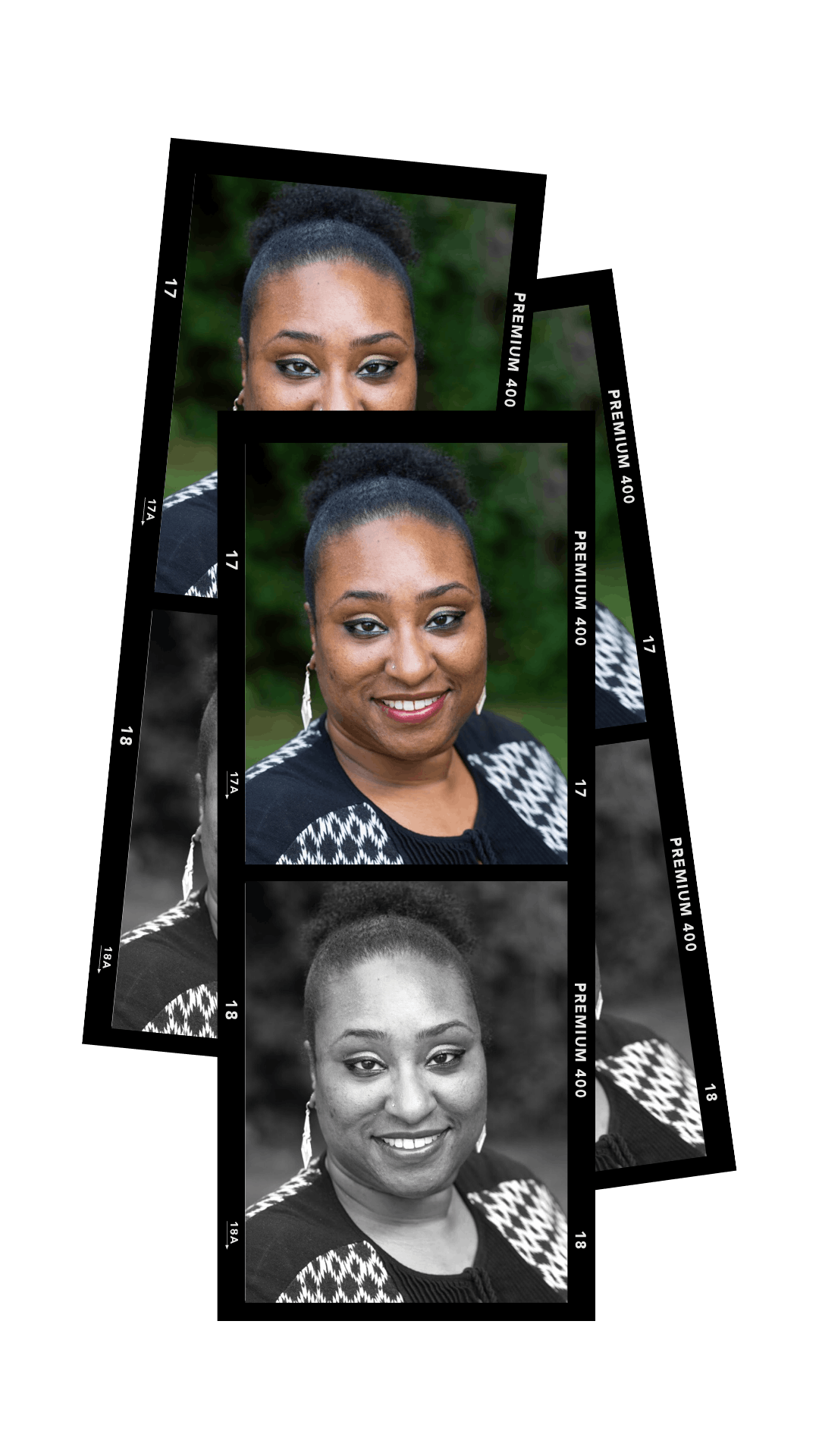Filmmaker Joy Cheriel Brown Sits Down with Casting Depot
Joy is the founder of Third Person Omniscient Productions, a production company whose mission it is to produce powerful, meaningful, thought-provoking movies, plays, and television shows that enlighten audiences about the human condition, shed light on the meaning of life, and raise the collective consciousness. Casting Depot sat down with Joy to hear her journey to becoming the filmmaker she is today.
 What’s your full name and occupation?
What’s your full name and occupation?
My name is Joy Cheriel Brown. I’m a filmmaker, which is an all-encompassing title I like to use because I’m a screenwriter, producer, and film director. I’m also an author and a playwright, and because I started my own production company, Third Person Omniscient Productions, I also consider myself to be an entrepreneur.
Tell us about you and your career.
Well, it all started when I was 10-years-old. I had just seen Home Alone in the movie theatres, and this was an amazing experience. I saw it in February 1991, and it had been out since at least November 1990, and the theatre was still packed on the day I saw it with my family. Macaulay Culkin looked like he was having so much fun that I decided I wanted to be an actress, so I asked my parents if I could get an agent, and they told me no. So, I decided to write my own script, direct that, and sell it to 20th Century Fox, which was the distributor for Home Alone—don’t ask me how I knew that this is how that worked, I think I read it in a book or something.
Anyway, my friends who I had casted for the movie, lost interest, and the only adult I had casted was my cousin’s husband. At the time, directing and producing the movie was a little over my head, especially since I was figuring it out as I went along so I decided to just write screenplays instead, and that was my focus from 1991-2004—I took maybe like a year or two off here and there to learn Spanish and because of a mental health issue I experienced. In 2004, I directed my first short (which I wrote and also produced) as a thesis project as an undergrad at Howard University, and I formally started my production company eight years later in 2012.
Tell us about your credits.
As I mentioned before, I wrote, directed, and produced a short film in college for the first time. It was called Figment (which can currently be found on my YouTube channel); in 2010, I was a high school English teacher, and I adapted one of my student’s essays into a short film called One Chance (also available on my YouTube channel), which premiered in 2011 in Bowie, Maryland; and in 2012, I made the short film, N.O.S., which is based on my first hospitalization for Schizoaffective Disorder in 1999 when I was 18. That film, N.O.S., premiered at the Reel Recovery Symposium and Film Festival in Los Angeles and New York City in 2018, and it was sold to ShortsTV this year and premiered on their channel back in June of this year (2020). Those are my film credits, but I have also produced a play that I wrote called Stuck, which premiered at the Washington, DC Capital Fringe Festival in 2019, and it received a four star review in DC Theatre Scene. Later that year, I went on to win Playwright of the Year from ACHI Magazine. Also in 2019, I wrote and published the book, “The Secret of Life Through Screenwriting: How to Use the Law of Attraction to Structure Your Screenplay, Create Characters, and Find Meaning in Your Script.”
Did you have to make difficult choices and what are the lessons learned?
As a producer, director, and entrepreneur, I always have to make difficult choices on a daily basis—from the little stuff like, where do I focus my time right now? I only have 24 hours in the day, to who do I hire for this role or responsibility, to even letting some professional relationships go because of a difference in the way the work is approached. Over the years, I have learned to trust my own intuition, and I also have learned to acquire as much knowledge as I can about everything that involves my profession, and then hire people who specialize in that thing when I can’t do it myself—for example, I’m definitely not great at lighting, shooting, or sound (ha ha). Gaining the periphery knowledge helps me know better who to hire. Trusting my intuition, acquiring knowledge, and trusting other people to know how to do their job has never steered me wrong.
What advice do you have for people looking to break into the industry?
I personally have always felt like I would write and produce my own films and TV shows, and then later my own stage plays as well. It was while watching the credits roll for ER one Thursday night that I decided that I wanted to create my own TV series as well as movies. Despite all that, I still tried the traditional route as well. I would query agents and producers. When I was a kid, I wrote to everyone to help get my movies made—Oprah, Jennifer Aniston, Sean “Puffy Combs,” Will Smith. The only responses I got were a headshot from Christina Ricci and Jennifer Aniston. Then as I got older, I would query production companies—in and outside of Los Angeles. At some point, I realized that I was sending the universe conflicting messages. I wanted to do my own thing, but yet, I was still pitching to others. I was even still pitching AFTER I started my production company. I went to my last pitch fest in 2013 and decided that the producers there couldn’t see my vision so I stayed the course and decided to do it myself. I currently have three projects that I’ve written in development at my production company—a feature film, TV series, and a stage play. I say all this to say that you don’t have to wait for someone else to give you permission or to say yes to you. Some people prefer to let someone else produce their script or give them a role— and there’s nothing wrong with that— but you can also do it yourself and make your own opportunities. It might take more work, but if you’re not getting any traction the traditional route, you might want to consider creating your own roles by writing your own script—I write for Script Magazine and I often offer advice to people who want to write screenplays. I’m a huge advocate for doing it yourself. Write your own script and star in that. I’ve always wanted to be an actress, and I still have to cross that bridge, but I’ve created some amazing roles for myself that I will play in the future. For people who really don’t want to do it themselves, and there are a lot of people in that category, become an expert at your craft—don’t worry about becoming famous or making a ton of money. When you expertly know your craft, I believe those other things will come—they have to, they are a byproduct of being excellent at your craft. So, study your craft, become consumed by it.
What are your favorite shows/film?
Right now my favorite TV show is This Is Us. It is literally the only show I watch every week. Everything else, I binge it when it I have two or three days to just watch TV and get through a season of whatever show I need to catch up on (I recently finished the last season of How to Get Away with Murder). This Is Us is one of the most well-written shows I’ve ever seen—right up there with ER. My favorite movie has been (500) Days of Summer since 2009. This is how much I loved that movie: Several years ago, I was working with a script consultant and I mentioned that movie to him and how amazing it is. He told me that he had taught one of the screenwriters of the film and that he could get a message to him about how much I loved the movie. I went on to write an essay (really, it was an actual essay, not just a long e-mail) about why it was such a great film and how it would change romantic comedies for the better, and the screenwriter responded. It was such an awesome feeling to be able to tell him how much I loved his movie and to thank him for going through whatever it took to get it made. I haven’t had a whole lot of time to watch TV and movies lately, but the only movie I have watched twice all year is Honey Boy (2019) by Shia LaBeouf. That movie is incredibly well written (I have posted some of my thoughts about Honey Boy, This Is Us, and How to Get Away with Murder on my Instagram page). Honey Boy is an example of an actor making his own opportunities. My first question for Shia when I meet him will be: Did you just learn how to write a perfect script through osmosis (just being around the business since you were a kid) or did you actually take classes and study the craft—the movie really is that outstanding.
What’s is been like working during COVID19?
COVID-19 has been interesting. Right at the start of the pandemic, my sales agent reached out to me and told me that he had a deal on the table for N.O.S., but it was kind of up-in-the-air because everyone was trying to navigate the pandemic. Thankfully, the deal went through and N.O.S. aired on ShortsTV a few months later in June. The other thing was that I was hoping to start speaking at conferences and other events, and I was hoping to produce the feature I’m working on and the TV series, but because of the pandemic, there was a question of “How will we get back to productions and being on set” or “How will we be able to be in front of audiences with hundreds or thousands of people? That really took some navigating. I’ve pushed the feature and TV series back at least until 2022, but I’m intending to produce my next stage play in 2021, but because of the pandemic, we are planning to shoot the play on stage in a theatre, and then we will edit it and distribute it digitally.
Here's her plug:
Website
The link to N.O.S. on Amazon
The link to “The Secret of Life Through Screenwriting
The link to YouTube Channel
To Join E-mail List
Instagram


